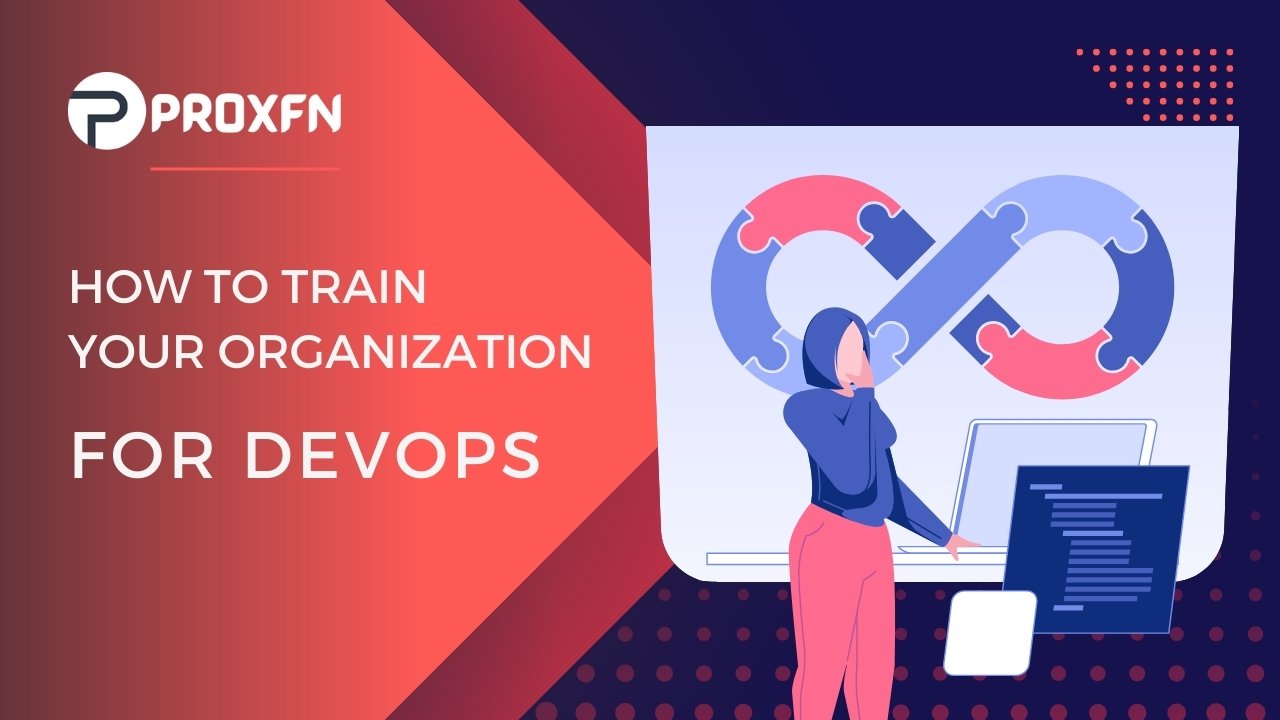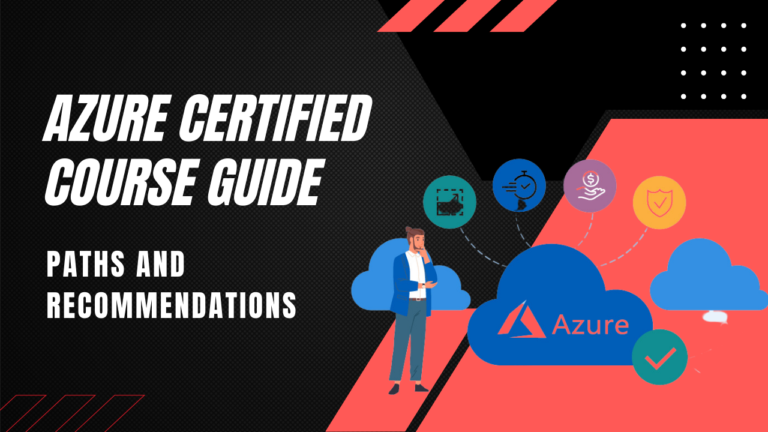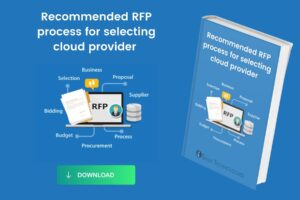DevOps has revolutionized software development and operations, enabling organizations to achieve faster delivery, higher quality, and improved collaboration. To embrace DevOps successfully, organizations need to invest in building a DevOps culture, developing necessary skills, and forming dedicated teams.
This article provides insights into training your organization for DevOps, focusing on cloud-based DevOps practices and the importance of training and skills development.
Understanding DevOps for Organizations
What is DevOps?
DevOps is a collaborative approach that combines software development (Dev) and IT operations (Ops) to achieve rapid, reliable, and continuous delivery of software products and services.
DevOps breaks down silos between development and operations teams, promoting collaboration, automation, and continuous improvement throughout the software delivery lifecycle.
Importance of DevOps for Organizations
DevOps offers several benefits for organizations, including accelerated software delivery, reduced time-to-market, improved product quality, and increased customer satisfaction.
By fostering collaboration, automation, and feedback loops, DevOps helps organizations respond quickly to market demands, adapt to change, and deliver value to customers more efficiently.
Building a DevOps Culture
Building a DevOps culture is essential for successful DevOps implementation. It involves creating an environment that encourages collaboration, continuous learning, and innovation.
Leadership Support and Alignment
DevOps transformation requires strong leadership support and alignment. Leaders must understand the benefits of DevOps and communicate its importance to the organization.
They should align goals, promote a culture of transparency and trust, and provide the necessary resources and tools to enable DevOps practices.
Collaboration and Communication
Effective collaboration and communication are critical in a DevOps culture. Break down silos between teams and encourage cross-functional collaboration.
Foster open communication channels, encourage knowledge sharing, and establish feedback loops to promote continuous learning and improvement.
Continuous Learning and Improvement
DevOps is a journey of continuous learning and improvement. Encourage individuals and teams to embrace a growth mindset, experiment with new technologies and practices, and learn from failures.
Implement mechanisms for continuous feedback, reflection, and adaptation to drive continuous improvement.
Developing DevOps Skills
Developing the right skills is crucial for successful DevOps adoption. Identify key DevOps skills relevant to your organization’s needs and invest in skill development.
Identify Key DevOps Skills
Identify the specific skills required for DevOps in your organization. This may include proficiency in scripting languages, infrastructure-as-code, version control systems, continuous integration/continuous delivery (CI/CD) pipelines, cloud platforms, and monitoring tools.
Understand the balance between technical skills and soft skills like collaboration, communication, and problem-solving.
Provide Training and Learning Opportunities
Invest in DevOps training programs and provide learning opportunities for individuals and teams. Offer courses, workshops, and certifications that cover relevant DevOps practices, tools, and methodologies.
Encourage employees to attend conferences, webinars, and meetups to stay updated with industry trends and best practices.
Encourage Cross-Functional Collaboration and Sharing
Promote cross-functional collaboration and sharing of knowledge and experiences. Facilitate communities of practice, lunch-and-learn sessions, and internal knowledge sharing platforms.
Encourage individuals to work on cross-functional projects to gain exposure to different areas of DevOps.
Forming a Dedicated DevOps Team
Forming a dedicated DevOps team can accelerate DevOps adoption and ensure its success within the organization.
Defining Roles and Responsibilities
Clearly define roles and responsibilities within the DevOps team. This may include roles like DevOps Engineers, Site Reliability Engineers (SREs), Release Managers, and Automation Specialists. Align these roles with your organization’s structure and goals.
Hiring and Upskilling
Recruit individuals with relevant DevOps experience and skills, or provide opportunities for existing employees to upskill and transition into DevOps roles. Encourage team members to pursue relevant certifications and participate in continuous learning activities.
Fostering Team Collaboration and Autonomy
Foster a collaborative and autonomous environment within the DevOps team. Encourage team members to take ownership of their work, make decisions, and collaborate across teams. Implement agile practices like Scrum or Kanban to facilitate effective teamwork and delivery.
Embracing Cloud DevOps
Cloud DevOps combines the principles and practices of DevOps with cloud computing, enabling organizations to leverage the scalability, flexibility, and automation capabilities of cloud platforms.
Leveraging Cloud Infrastructure and Services
Leverage cloud infrastructure and services to support DevOps practices. Use cloud platforms like AWS, Azure, or GCP to provision and manage infrastructure resources.
Take advantage of managed services, serverless computing, and containers to optimize scalability, efficiency, and resource utilization.
Adopting DevOps Tools and Automation
Adopt DevOps tools and automation to streamline processes and increase efficiency. Use tools for configuration management, CI/CD pipelines, infrastructure automation, monitoring, and log management. Implement infrastructure-as-code practices to manage infrastructure configurations and deployments.
Ensuring Security and Compliance
Address security and compliance considerations in your DevOps practices. Implement security controls, follow best practices for secure cloud configurations, and integrate security testing into CI/CD pipelines.
Stay updated with relevant compliance requirements and ensure compliance throughout the software delivery lifecycle.
DevOps Training Programs and Resources
Researching DevOps Training Options
Research various DevOps training options available. Look for reputable training providers, online courses, and workshops that cover cloud-based DevOps practices, tools, and methodologies. Consider the specific needs and goals of your organization.
Tailoring Training Programs to Organization’s Needs
Tailor training programs to meet your organization’s specific requirements. Customize training content to align with your technology stack, cloud platform, and desired DevOps practices. Consider offering hands-on exercises, real-world case studies, and simulations to provide practical experience.
Utilizing Online Resources and Communities
Leverage online resources and communities for continuous learning and knowledge sharing. Explore blogs, forums, webinars, and open-source projects related to DevOps. Encourage team members to participate in relevant online communities to learn from experts and share experiences.
Conclusion
Training your organization for DevOps is a crucial step in embracing this collaborative and efficient approach to software delivery. By building a DevOps culture, developing necessary skills, forming dedicated teams, and embracing cloud-based DevOps practices, organizations can achieve faster, higher-quality software delivery and improve overall operational efficiency. Invest in training programs, provide learning opportunities, and leverage online resources to support your organization’s DevOps journey.





